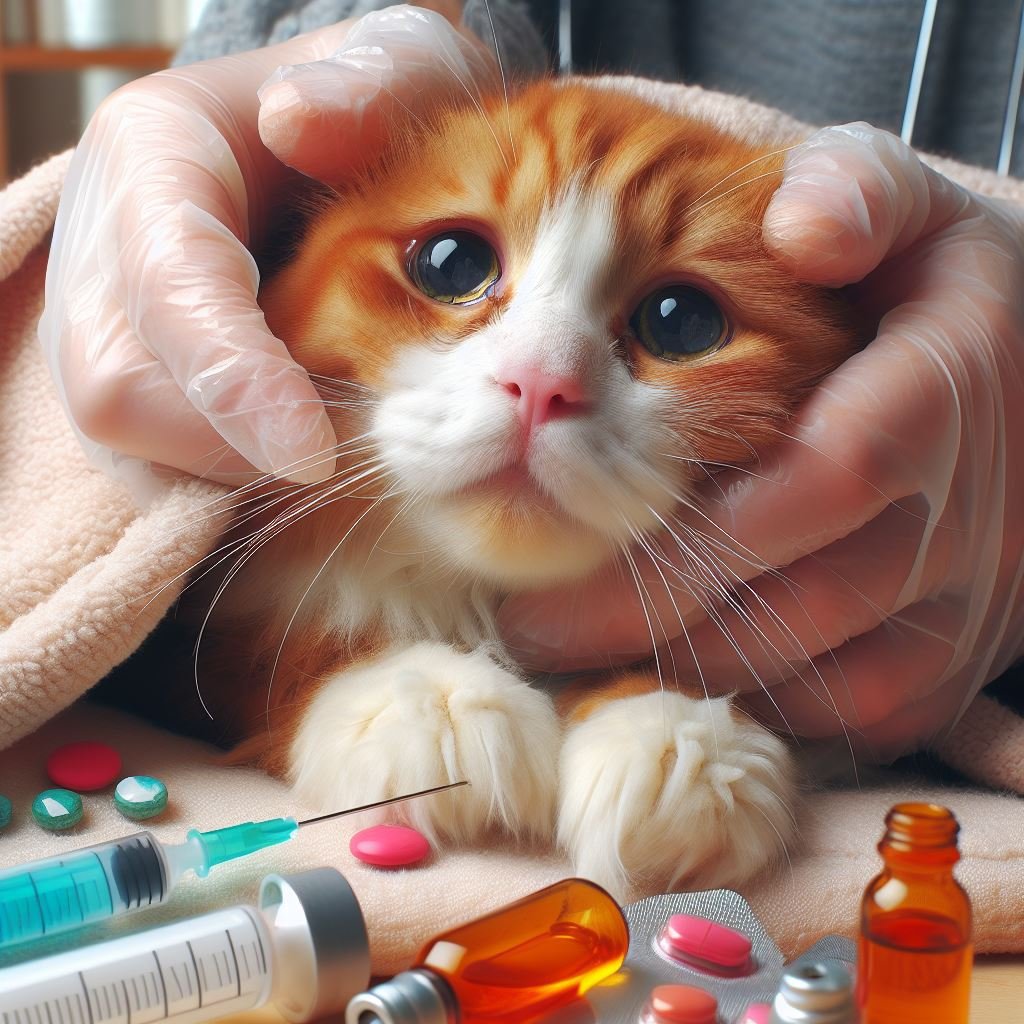
Table of Contents
ToggleSigns of Parvo in Cats
Introduction to Feline Parvovirus
Feline parvovirus, also known as feline panleukopenia virus (FPV), is a highly contagious viral infection that affects cats worldwide. It belongs to the family Parvoviridae and primarily targets rapidly dividing cells, particularly cells in the bone marrow and intestines. FPV is closely related to canine parvovirus (CPV) but is specific to cats and does not pose a risk to dogs or humans. Understanding the signs and symptoms of feline parvovirus is crucial for prompt diagnosis and treatment to improve the chances of survival for affected cats.
Recognizing the Symptoms
Gastrointestinal Distress
One of the most prominent signs of feline parvovirus infection is severe gastrointestinal distress. The virus attacks the lining of the intestines, leading to symptoms such as:
- Vomiting: Cats infected with FPV often vomit repeatedly, which can be persistent and severe.
- Diarrhea: The diarrhea associated with FPV is often profuse, watery, and may contain blood. This can quickly lead to dehydration, which is a serious concern requiring immediate veterinary attention.
- Loss of Appetite: Cats with FPV typically lose their appetite due to nausea and abdominal discomfort.
Fever and Lethargy
Feline parvovirus infection commonly causes fever and lethargy. Cats may exhibit:
- High Fever: A fever above 105°F (40.5°C) is a typical sign of FPV infection.
- Lethargy: Infected cats become extremely weak and tired, often appearing subdued or uninterested in usual activities.
Rapid Weight Loss
Due to severe vomiting, diarrhea, and lack of appetite, cats with FPV can experience rapid and noticeable weight loss within a short period.
Respiratory and Neurological Signs
In severe cases, feline parvovirus can lead to respiratory and neurological symptoms:
- Respiratory Distress: Cats may show signs of difficulty breathing, such as rapid or labored breathing.
- Neurological Symptoms: In advanced cases, neurological signs like tremors, seizures, or lack of coordination may occur.
Diagnosis and Treatment
Veterinary Examination
If you suspect your cat may have feline parvovirus based on observed symptoms, it is crucial to seek immediate veterinary care. The veterinarian will perform a thorough physical examination and may recommend diagnostic tests, including:
- Fecal Analysis: Testing the feces for the presence of FPV antigens or genetic material.
- Complete Blood Count (CBC): A CBC can reveal a significant decrease in white blood cells (leukopenia), which is characteristic of FPV infection.
- PCR Testing: Polymerase chain reaction (PCR) tests can detect the genetic material of the virus with high sensitivity.
Supportive Care
Treatment for feline parvovirus primarily focuses on supportive care to manage symptoms and prevent complications:
- Fluid Therapy: Intravenous fluids are administered to combat dehydration and maintain electrolyte balance.
Treatment and Supportive Care
There is no specific antiviral medication to directly target feline parvovirus. Therefore, treatment primarily involves supportive care to manage symptoms and provide the best chance of recovery:
- Fluid Therapy: Intravenous fluids are administered to combat dehydration and maintain electrolyte balance.
- Nutritional Support: Cats with FPV often have reduced appetite, so nutritional support such as syringe feeding or appetite stimulants may be necessary.
- Medications: Anti-nausea medications and antibiotics to prevent secondary bacterial infections may be prescribed by the veterinarian.
Isolation and Quarantine
Since feline parvovirus is highly contagious among cats, infected individuals should be isolated to prevent further spread of the virus. Quarantine measures are essential to protect other cats in the household or community.
Prognosis and Recovery
The prognosis for cats with feline parvovirus depends on the severity of the infection and how quickly treatment is initiated. Kittens and immunocompromised cats are at higher risk of complications and mortality. With prompt veterinary care and intensive supportive treatment, many cats can recover from FPV, although it may take several weeks for them to regain full health.
Conclusion
Feline parvovirus is a serious and potentially life-threatening viral infection that affects cats of all ages, particularly kittens and unvaccinated individuals. Recognizing the signs of FPV, such as severe gastrointestinal distress, fever, lethargy, and rapid weight loss, is crucial for early diagnosis and treatment. Veterinary care should be sought immediately if you suspect your cat may have FPV.
Although there is no specific antiviral treatment for FPV, supportive care including fluid therapy, nutritional support, and medications to manage symptoms can greatly improve the chances of recovery. It is essential to isolate infected cats to prevent the spread of the virus to other feline companions.
Prevention is key to protecting cats from feline parvovirus. Vaccination against FPV is highly effective and is recommended for all cats, especially kittens. By staying vigilant, recognizing the signs of FPV, and providing timely veterinary care, we can minimize the impact of this infectious disease and ensure the health and well-being of our feline friends.
